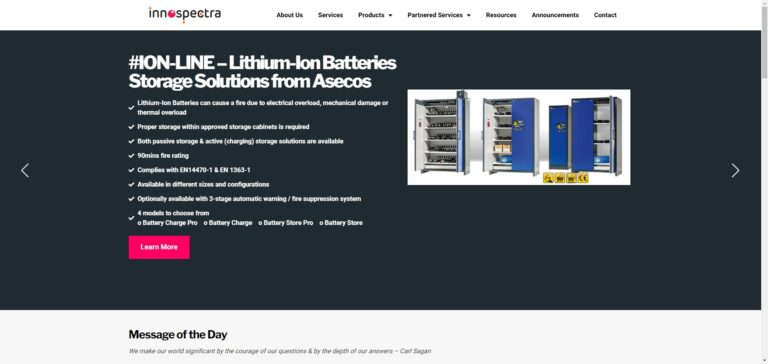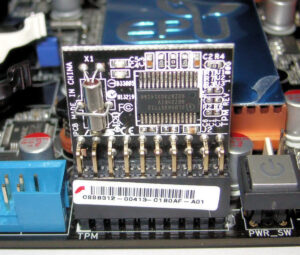Understanding Real-Time Operating Systems: What You Need to Know
In our increasingly interconnected and digital world, the need for real-time responsiveness has become paramount. Real-time operating systems (RTOS) play a vital role in achieving this by providing a framework for controlling and managing applications that require precise and predictable timing. In this article, we’ll explore the concept of RTOS, its key features, and its applications.
What is a Real-Time Operating System?
A real-time operating system (RTOS) is a specialized software system that manages and controls the execution of tasks and processes with precise and predictable timing constraints. Unlike general-purpose operating systems like Windows, Linux, or macOS, RTOS is designed to guarantee that tasks are executed within a specific time frame. It ensures that high-priority tasks take precedence over lower-priority ones, enabling timely responses to various inputs and events.
Key Features of an RTOS
- Determinism: One of the defining characteristics of an RTOS is its deterministic behavior. Determinism refers to the ability to ensure that tasks are executed within a known and bounded time frame, making it suitable for applications where timing is critical.
- Priority-Based Scheduling: RTOS employs priority-based scheduling, where tasks are assigned priorities based on their criticality. Higher-priority tasks preempt lower-priority tasks, ensuring that the most important tasks are executed first.
- Hard and Soft Real-Time: RTOS can be categorized into hard real-time and soft real-time systems. Hard real-time systems have strict, non-negotiable timing requirements, while soft real-time systems have timing requirements that are important but may allow some flexibility.
- Interrupt Handling: RTOS provides efficient mechanisms for handling hardware and software interrupts. This is crucial for devices that require immediate attention to external events, such as sensors, controllers, and communication modules.
- Low Latency: RTOS minimizes the time it takes for a task to start executing after it’s scheduled, resulting in low latency. This is essential for applications where immediate response is critical, such as in automotive safety systems or medical devices.
Applications of RTOS
- Automotive Systems: RTOS is extensively used in the automotive industry for tasks like engine control, anti-lock braking systems (ABS), airbag deployment, and more. These applications require split-second decisions and immediate responses to ensure driver and passenger safety.
- Aerospace and Defense: In aviation and military applications, RTOS is used in flight control systems, guidance systems, radar systems, and communication systems. The ability to process data with precision and minimal delay is crucial in these domains.
- Industrial Automation: RTOS plays a significant role in manufacturing and industrial automation, controlling processes like assembly lines, robotic systems, and quality control. These applications demand precise timing for maintaining production efficiency.
- Medical Devices: RTOS is used in medical devices like pacemakers, infusion pumps, and patient monitoring systems to ensure timely and accurate responses to patients’ needs and safety.
- Consumer Electronics: In devices like digital cameras, smartphones, and audio processing equipment, RTOS helps manage image processing, user interface responsiveness, and audio streaming without noticeable delays.
Conclusion
Real-time operating systems are a fundamental component of many critical systems and applications in our modern world. With their deterministic behavior, priority-based scheduling, and low latency, RTOS ensures that tasks are executed within defined time frames, making it essential for applications where timing is of the essence. Whether in automotive safety systems, aerospace technology, or medical devices, RTOS continues to play a pivotal role in our daily lives by ensuring that technology responds to our needs with precision and reliability.
Listings related to article "Understanding Real-Time Operating Systems: What You Need to Know"
Laureate Aesthetics
Laureate Aesthetics is a boutique medical spa located in Sherman Oaks, California, founded by Nurse Practitioner Liana Sahakyan, RN, MSN, and dedicated to providing personalized, high-end aesthetic treatments that enhance natural beauty.
Gharibian Law
Gharibian Law is a leading firm specializing in elder abuse and personal injury cases, dedicated to defending the rights of seniors and vulnerable individuals. With a strong record of success in nursing home abuse, medical malpractice, and wrongful death cases, the firm is committed to securing justice and holding negligent parties accountable.
Innospectra
Innospectra offers a diverse array of cutting-edge solutions and extensive products designed for workplace safety in Singapore.
- Category
- Business » Business Services » Safety
More articles like "Understanding Real-Time Operating Systems: What You Need to Know"
Unlocking the Power of WebAssembly: A Game-Changer for Web Development
In the ever-evolving landscape of web development, a groundbreaking technology has emerged, poised to revolutionize the way we build and experience web applications. Enter WebAssembly, often abbreviated as Wasm, a game-changer that promises faster performance, broader language support, and enhanced security for web applications. But what exactly is WebAssembly, and how can it be harnessed […]
Understanding Oracles in Blockchain: Bridging the Gap Between Smart Contracts and the Real World
Blockchain technology has transformed the way we perceive and conduct transactions, introducing decentralized and secure systems that eliminate the need for intermediaries. Smart contracts, a key component of blockchain platforms, enable automated and trustless execution of agreements. However, there’s a crucial challenge these contracts face—accessing real-world data. This is where oracles come into play. What […]
Trusted Platform Module (TPM): Enhancing Digital Security and Beyond
In an era where digital threats and cybersecurity breaches are becoming increasingly sophisticated, the need for robust and comprehensive security measures is paramount. Trusted Platform Module (TPM) has emerged as a pivotal technology that contributes to elevating digital security to new heights. In this article, we will delve into the concept of TPM, its applications […]







